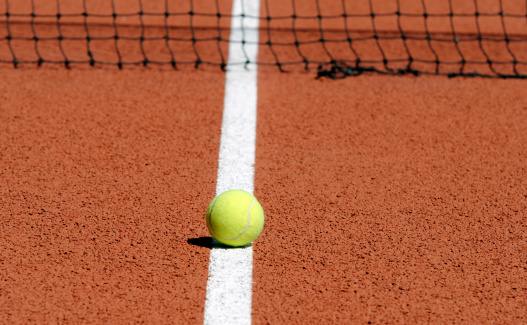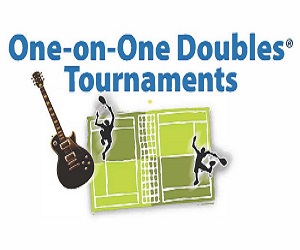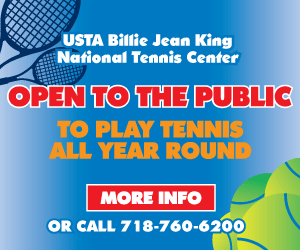How to Find the Right Coach for Your Child

When your son or daughter catches the tennis bug and has a little talent to match, it could be very overwhelming when figuring out what academy to join or what coach to train with privately. Parents often make quick decisions based on unnecessary facts.
In today’s very competitive business environment, many coaches recruit at tournaments constantly. While it seems like a great way for coaches and parents to meet, I believe it is not. A good coach never recruits, but is recruited by a player or parent. As Gilad Bloom has written, a good coach is in charge of his or her student, and not vice-versa, therefore any relationship that is started by a coach going to tournaments and recruiting is not a relationship that has started out on the right foot. The player-coach relationship that exists in tennis is the most delicate relationship in sports. Coaches cannot produce miracles, but the relationship one forms with his or her coach can certainly produce either success or failure. Here are some important tips when contemplating a coach:
1. Chemistry with your coach
The most important aspect when choosing a coach is the chemistry that exists between the coach and student. If your son or daughter wishes to be a serious player, they are going to spend a lot of time with their coach. My first student became like a son to me, but it also didn’t happen overnight. In fact, at first, we did not even speak the same language. I would pick the boy up from school every day of the week, play with him for two hours, and drop him back off at home. We spent nearly four hours per day together, and within a few months, we were very close, and he learned English! After two years, he was one of the best players in the nation, and we spent a lot of time traveling the country playing tournaments. If we had not each others company, perhaps he would not have been as successful. He understood the way I taught and I learned to read his emotions very well. Some coaches tend to resonate better with certain players, and it is important to find a coach that your son or daughter not only respects, but also gets along with. No better example of chemistry can be seen than that of the relationship between James Blake and his coach, Brian Barker, who coached James from the age of 12 to 29.
2. Don’t ask, “So who plays at your academy?”
This has to be the most commonly asked question by parents to coaches. Parents always seem to want to know which top-ranked players attend a particular academy, in the slight chance that their son or daughter will get on the court with these top players. Large academies will always have the finances to offer more scholarships, thus having more top-ranked local players. They may or may not have an academy built for creating good players, but the number of scholarships they give out will have no impact on this. It is more important to analyze who has the academy or coach produced from scratch. Keep in mind … players like Rafael Nadal and Roger Federer came from very small projects.
3. Coaches have strong points and weak points, but good coaches admit it
A few years ago, Novak Djokovic brought in Todd Martin as a second coach. He had already won a Grand Slam, and his coach was clearly Marion Vajda. After some long discussions, Marion admitted it would be a good idea to bring in some new ideas, especially someone to help out Novak’s serve and volleys. Not long after, Novak also hired doubles legend Mark Woodforde to help him with his volleying. We all know that Novak is a much more complete player now than he was say three years ago, but it must be noted that his coach recognized his own limitations, and putting his ego aside, urged Novak to get help from a second coach.
Some coaches are strong in the area of technique and biomechanics. They have studied many years’ worth of sports science, and while they may not be able to play well anymore, they can feed 2,000 balls, breaking apart a swing and putting it back together again. A coach of this mold is excellent for beginners and young players as they can give the player the technical foundation needed. Some examples of phenomenal technical coaches are Robert Landsdorp, John Yandell, Gabriel Matteazzi and George Garland. Landsdorp himself has said that for every one hour spent taking a lesson, one should also spend an hour with a hitter working on the very same thing in a live-ball setting. This is an example of a coach who recognized that a player might need more than just his coach to succeed.
A travel coach is also somewhat different, and could complement your coach at home. A good travel coach will be very organized, tactically savvy, and have good knowledge of fitness and nutrition regimens. When Rafael Nadal was young, he had a second coach by the name of Jofre Porta, who would take him to tournaments in other countries.
There are also some coaches who are master motivators. The Eastern Europeans are notorious for being tough on their students, but also finding ways to motivate them. Nick Bollettieri is the best American coach for motivation, as he offers an “Us vs. The World” dynamic that can keep students working hard every minute of every day. It is certainly possible for a coach to be efficient in all areas of coaching, but it is important to understand what type of coach may be best for you at a particular part of your career.
4. What are his or her credentials?
This is not the only way to find a good coach. In fact, some coaches fly under the radar of the general public because they wish to. They run very small projects working with adults and small children, or they may run the day-to-day operations of a club. However, most good coaches have produced top players at some stage in their career. It’s your job to find out whom they have produced, and where they have studied. In Spain, for instance, all coaches (even former professionals) go through a rigorous coaching certification course in which they study anatomy, biomechanics, nutrition and physiology in order to become a coach in that country. There are similar coaching certifications and courses that exist here in the United States, and many coaches do the bulk of their education through these programs such as the USPTA and PTR. Also, some coaches have been able to study under very distinguished coaches, and therefore, may have a similar philosophy to that coach. It is your job to find out what that coach has done in their career, and if he or she is the right fit for you or your child.
5. Find a coach you trust, and be loyal to them
When choosing a coach for a serious tennis player, one should do their homework. When you find a coach that has all of the qualities you wish to see, trust the coach. A good coach should be able to handle all aspects of a player’s tennis game, including choosing a sufficient tournament schedule, nutrition and physical training (or setup the student with a colleague who can handle this), and helping the student create an identity for themselves. Some parents have their children in four different programs, or bounce around from academy to academy. This creates a situation where the child is being taught differently all of the time, and they can even be seen as just a number to the academy, as opposed to a loyal student with long-term goals. If the student plays with other coaches or academies, it should be the mutual decision of the coach and student.






